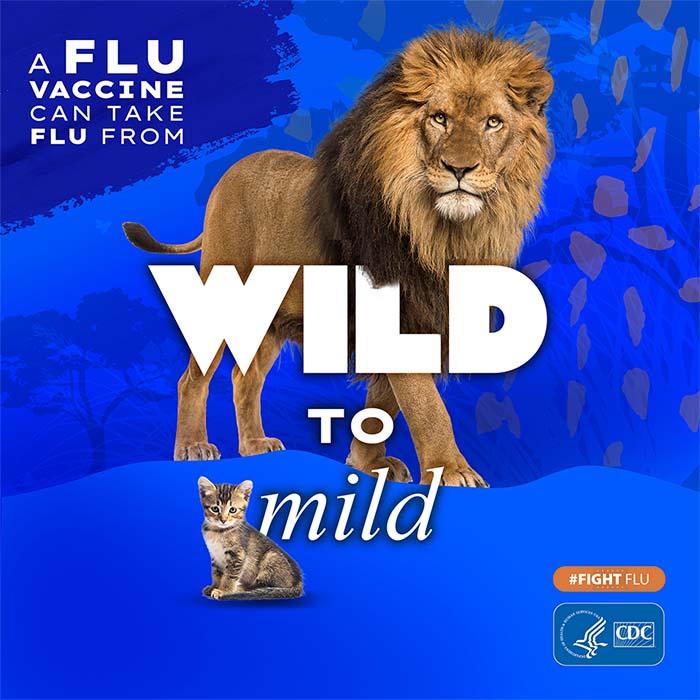Flu Fighter: Aisha Bhatti
Dr. Aisha Bhatti is a pharmacist and independent pharmacy owner. Her mission is to advocate for and promote the importance of vaccinations and the flu vaccine within the community. She is particularly involved in and passionate about ensuring that underserved areas, the uninsured, underinsured, ethnic minorities and often neglected communities have access to education about the flu vaccine and understand the significant role it plays in contributing to good health, as well as healthy communities at large.
With Dr. Bhatti’s collaboration, Home Towne Rx Pharmacy partnered with the City of Trenton’s Health and Human Services Department Division of Health during the 2015 and 2016 flu season. The public/private partnership provided hundreds of free flu vaccinations at more than 25 events. The campaign was aimed at serving underserved low income populations, and flu vaccinations were offered at soup kitchens, senior housing complexes, Trenton City Hall, the local police and fire stations, houses of worship and multiple other locations city wide. Dr. Bhatti’s mission is to build partnerships statewide and create a platform with mayors of cities and government officials to increase and support flu vaccination awareness on a large scale, to address the underserved, so together a substantial difference can be made towards a healthier New Jersey.
Name: Aisha Bhatti, BPharm, PharmD, RPh
Title: Pharmacist, Director of Pharmacy, Home Towne Rx Pharmacies
Location: New Jersey
- In your role, how do you prepare for flu season each year?
As a community/retail pharmacist deeply embedded within my immediate community, my staff and I are well positioned to make a significant impact regarding flu vaccinations and patient care. Pharmacists are highly accessible health care professionals, and our unique relationship with our patients is based on mutual trust, allows us a great opportunity and platform to educate patients and increase awareness. Home Towne Rx Pharmacy does this by attending community outreach events, health fairs, and being in tune with what is happening in our area. We prepare for the flu season by distributing materials available from the CDC and The National Influenza Vaccination Disparities Partnership (NIVDP) at all our pharmacy locations to ensure patient awareness, and offer materials in multiple languages as well. We offer vaccinations on site, as well as conduct multiple flu clinics city wide in conjunction with our partners. - What is the most difficult part of flu prevention?
The underserved and low socioeconomic areas which we serve can often present challenges and obstacles. Overcoming stereotypical thinking regarding the flu vaccine is often my biggest challenge. Changing negative cultural beliefs, barriers and misconceptions can be difficult. Educating people to help them understand that flu vaccinations are integral to their well-being and a critical component of their overall health is crucial. Because we interact with a large Hispanic population, our Spanish speaking staff plays an important role in clearing misconceptions and convincing them to get their flu shot. - Why do you think people underestimate the seriousness of flu illness?
In my experience, people often associate the flu with a common cold, fever and aches and pains that will pass in a few days. People lack the basic knowledge that the flu is not a common cold, and that it is a virus. Education and awareness is critical, because generally serious flu related complications are not an association that people make. Many people do not consider the significance the flu may have on their chronic underlying conditions and disease state. For example, our pharmacy patient population consists largely of children who have chronic asthma. Demographics and ethnicity also play an important role in determining or predicting how serious outcomes can become, even for something seemingly as simple as the flu. - Why is it important to get the flu shot every year?
It is important for the safety and health of every individual, and in turn, for safer and healthier communities. An annual flu shot will help provide immunity and higher protection levels, as the level of immunity decreases over time. Every year, the strains vary and vaccine formulations are reviewed to ensure maximum protection. It is imperative that awareness is spread so that abiding by the recommended guidelines is mainstream, and thousands of complications and deaths can simply be avoided. - What would you say to those who are hesitant about getting the flu shot?
I would engage with them to try and understand what their reservations are and where they are stemming from. Whether cultural, religious or any other kind of concern, it is important to give patients the facts about the flu vaccination. In my experience, once people are equipped and empowered with knowledge, they understand that they are better off getting the vaccine. Prevention is key, as is education and awareness.



